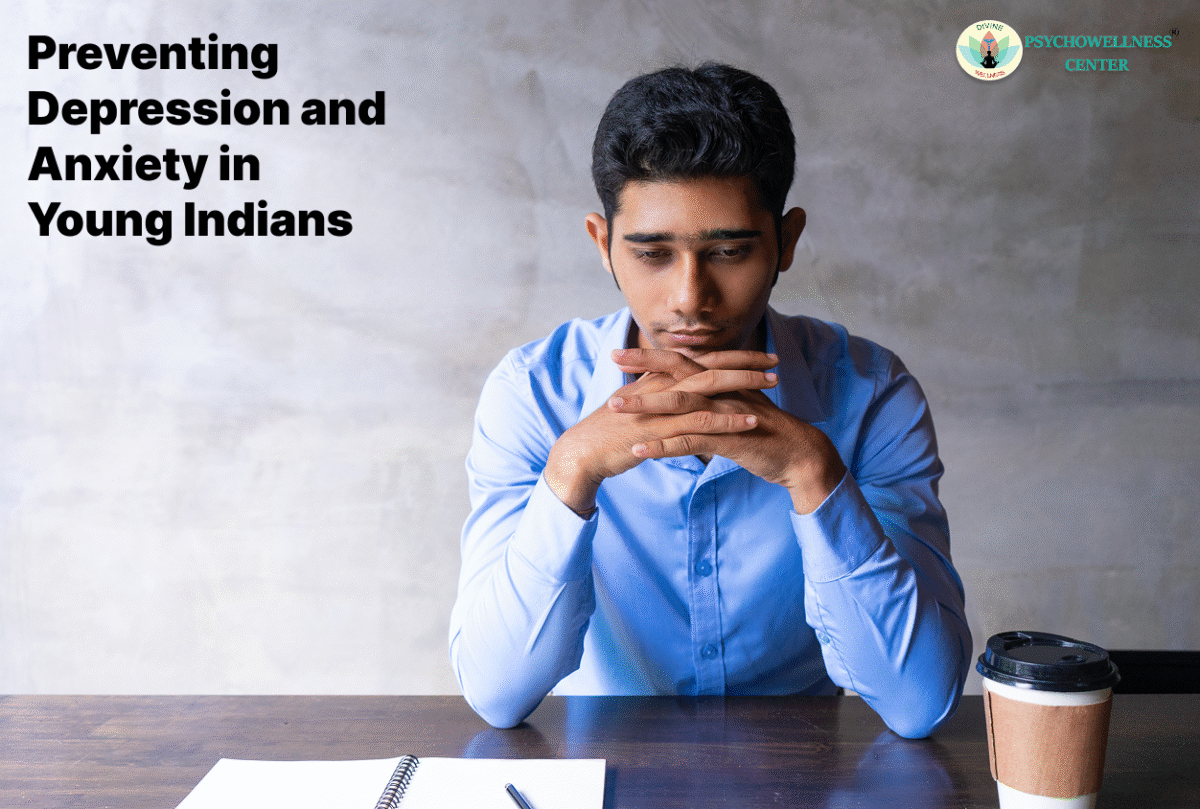In recent years, mental health issues such as depression and anxiety have emerged as significant concerns among young Indians. The pressures of academic performance, career expectations, and social dynamics can create a perfect storm for mental health challenges. This article explores various strategies to prevent depression and anxiety in young Indians, emphasising the importance of awareness, support systems, and self-care practices.
Understanding the Landscape
India’s young population is facing unprecedented challenges. Factors such as:
- Academic Pressure: Intense competition in academics leads to stress and anxiety. Many students feel pressured to perform exceptionally well in examinations, which can lead to burnout.
- Social Media Influence: The rise of social media often results in comparison, cyberbullying, and a skewed perception of reality. Young individuals may feel inadequate when comparing their lives to carefully curated online personas.
- Family Expectations: Traditional family structures and expectations can create additional pressure. Parents often have specific career paths in mind for their children, which may not align with the child’s interests.
- Economic Uncertainty: Job market fluctuations can lead to anxiety about the future. The growing competition for limited job opportunities can exacerbate feelings of insecurity.
Recognising these factors is crucial for understanding the mental health landscape among youth.
Early Awareness and Education
- Mental Health Education: Implementing mental health education in schools and universities can help students recognise the signs of depression and anxiety. Workshops and seminars can provide valuable information on coping strategies and resources available for help.
- Open Discussions: Encouraging conversations around mental health can reduce stigma. Peer support groups can create safe spaces for students to share their experiences and feelings, promoting a sense of community and understanding.
- Curriculum Integration: Integrating mental health topics into the curriculum can normalise discussions around emotional well-being, helping students understand the importance of mental health from an early age.
Building Strong Support Systems
- Family Support: Families play a vital role in the mental health of young individuals. Educating parents about mental health can foster understanding and support. Open communication within families can help children feel safe discussing their struggles.
- Peer Support: Friends can be an essential source of support. Encouraging young people to check in on each other and actively listen can create a culture of care and understanding. Peer-led initiatives can also promote mental health awareness.
- Professional Help: Promoting access to mental health professionals, such as counsellors and psychologists, can provide young people with the resources they need to cope with their feelings. Schools should consider having on-site mental health professionals to facilitate easy access.
Self-Care Practices
- Physical Activity: Regular exercise has been shown to reduce symptoms of depression and anxiety. Encouraging young people to engage in sports or physical activities can significantly improve their mental health. Group activities, such as team sports, can also foster social connections.
- Mindfulness and Meditation: Practices such as yoga, meditation, and mindfulness can help reduce stress and improve emotional regulation. Workshops and classes can introduce these techniques to young individuals, promoting long-term mental health benefits.
- Healthy Lifestyle Choices: Promoting a balanced diet, proper sleep hygiene, and limited substance use can contribute to better mental health. Educating young people about the impact of lifestyle choices on their mental well-being is essential.
- Creative Outlets: Encouraging artistic expression through music, art, or writing can serve as an effective coping mechanism. Creative activities can help young individuals process their emotions and reduce feelings of isolation.
Creating a Positive Environment
- Reducing Academic Pressure: Educational institutions can adopt policies that prioritise mental well-being alongside academic achievement. Encouraging a balanced approach to education can help reduce stress. Schools can offer flexible academic programs that allow for exploration of interests.
- Limiting Screen Time: Teaching young people to manage their screen time, especially on social media, can help reduce feelings of inadequacy and anxiety. Setting boundaries around technology use can create healthier habits and encourage face-to-face interactions.
- Encouraging Hobbies: Encouraging young people to explore hobbies and interests outside of academics can provide a sense of purpose and fulfilment. Creative outlets can serve as effective coping mechanisms, allowing for self-expression and relaxation.
- Community Engagement: Involvement in community service or volunteering can instil a sense of purpose and connectedness. Engaging in community activities can help young individuals build social networks and feel valued.
Conclusion
Preventing depression and anxiety in young Indians requires a multifaceted approach that includes education, support systems, self-care practices, and a positive environment. By fostering awareness and promoting mental health resources, we can empower the youth to navigate the challenges they face and build resilience. Mental well-being is not just an individual concern; it is a collective responsibility that requires the involvement of families, educational institutions, and society at large.
For young individuals struggling with stress, anxiety, or emotional imbalances, the Psychowellness Center, located in Dwarka Sector-17 and Janakpuri, New Delhi (011-47039812 / 7827208707), offers professional counselling, youth therapy, and emotional wellness programs designed to strengthen coping skills and enhance mental resilience. Their team, which includes some of the best psychologists near me, uses evidence-based approaches such as CBT, REBT, and Mindfulness-Based Therapy to help young people develop clarity, confidence, and emotional balance. For convenient online sessions, TalktoAngel provides accessible virtual counselling and strength-based therapy to support youth in building healthy habits and positive mindsets in real-life situations.
Encouraging a culture that values mental health, combined with proactive professional support, can significantly reduce the incidence of depression and anxiety among young Indians. Together, we can create a compassionate, informed society where every young person has the opportunity to thrive emotionally and mentally.
Contribution: Dr. R.K. Suri, Clinical Psychologist, and Ms. Swati Yadav, Counselling Psychologist
References
- National Institute of Mental Health and Neurosciences (NIMHANS). (2023). Mental Health Awareness in India.
World Health Organisation (WHO). (2024). Youth Mental Health: A Global Perspective.
- Mental Health Foundation. (2025). Understanding Anxiety and Depression in Young People.

